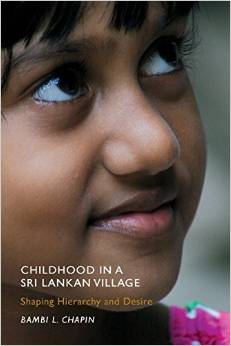Bambi Chapin, an associate professor of sociology and anthropology, is the author of a compelling new book which offers a global perspective on the transmission of culture and childhood development. The book, Childhood in a Sri Lankan Village: Shaping Hierarchy and Desire, describes the results of Chapin’s anthropological research done while living for nearly two years in a central Sri Lankan village observing and studying how mothers were raising their children.
Chapin was interviewed on WYPR’s Maryland Morning about her new book and what she set out to discover: “How is it that people become the culturally shaped people we become? What happens in how we’re raised, in the experiences that we have that make us want to be in the relationships that we want to be in?” Chapin said. “How does culture get transmitted?”
Discussing her research further, Chapin said, “I really became interested in the subtle, every day kinds of interactions that produce such surprising results. I then tried to unpack that and use it as an example to call into question some of our assumptions of how children are and how they learn.”
“The people I knew in Sri Lanka thought that maturity was demonstrated by knowing when to hold your tongue, knowing who was wiser than you, who would make a better decision, and by choosing to go along with that,” she added.
To listen to interview in its entirety that aired July 9, click here.

